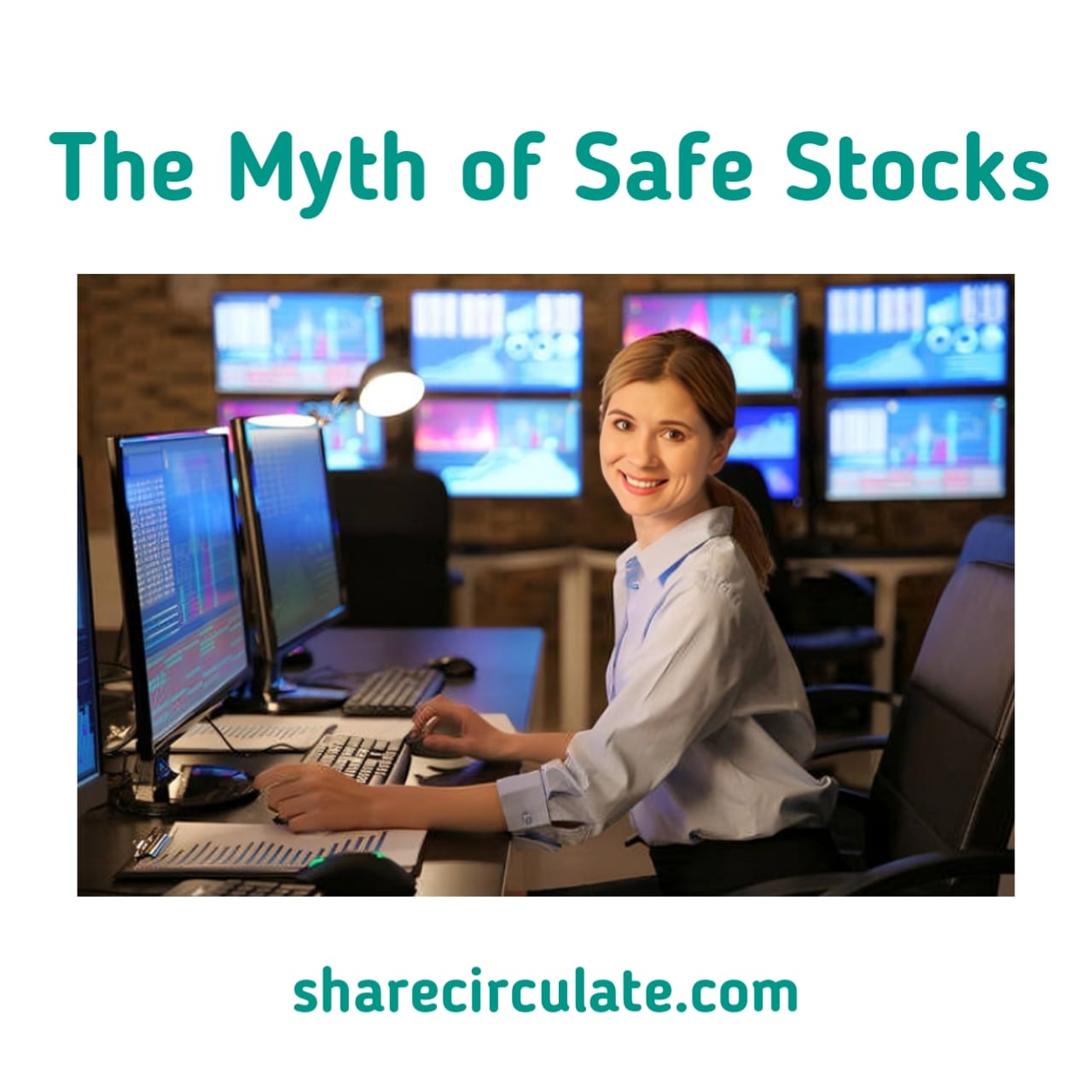Safe Stocks is a myth and many investors fall into this trap by fake finfluencers and news anchors. Investing in stock market is a long term game and many people think investing into safe stock never fall but they think wrong about it.
Stock will fall at any time no matter how good business look base on their fundamentals. Past track records doesn’t guarantee future performance and returns.
This misconception can lead to overconfidence in investors, they may face financial loss on their investments. While certain companies may appear to have stable earnings, strong market positions, and relatively low volatility, no stock is entirely risk-free, because companies will fail due to change in management, location, etc.
This article will explore the myth of safe stocks, analyze the risks involved in purchasing shares of companies, and offer strategies for mitigating investment risks.
What Are Safe Stocks?
Safe Stocks are well established companies with good track records in financial years, have good cash flow, stable dividends and monopoly in different countries.
These companies are generally found in sectors like consumer durable, FMCG and Information Technology, Healthcare. Investors tend to believe that such companies will show less declines and they provide guaranteed returns over the long run.
Large Cap stocks generally considered as safe stocks by mutual fund houses, and Foreign Institutions Investors. Large Cap companies are those having market cap more than 50,000 Crores and have stable revenue growth.
Mutual Fund Houses prefer large cap stocks while investing into market for long term but they also make losses. Individual investors need to be careful and make portfolio to mitigate risk.

Failed Companies Considered As Safe Stocks
Example of many companies that considered safe in past now they have zero market capitalization and filed bankruptcy.
Kingfisher Airlines is extremely successful business in india, started by famous businessman vijay mallya in 2005. Kingfisher Airlines is india’s fastest growing aviation company but due to mismanagement, regulatory challenges and operational efficiencies company faced downfall.
Hindustan Motors, founded by Famous conglomerate group BM Birla in 1942. Company play monopoly in indian market in between1960-1970. It failed due to lack of innovation and competitors like top group like TATA and Mahindra.
Liberalization of the Indian Economy in 1990’s, due to this reforms foreign players enter into indian market and sold cars at low rates and destroy Hindustan Motors monopoly from the market.
Kodak was a dominant player in photography but failed to adapt to the digital revolution, leading to its bankruptcy. Many investors considered kotak as safe and think it will never fail.
Risks Associated with Buying Stocks
Market Risk :- No one can predict market movement, no matters how much in depth knowledge they have about stocks and economics. Geopolitics play a crucial role in economy. Any sudden tension arise in any country it will affect directly or indirectly to the other countries GDP.
Company-Specific Risk :- If you invest only in one company, you will lose all your investment when company bankrupt. Every company is a unique and different revenue sources, if any new government policies introduce then it will affect business growth prospects. Many company face scandals not matter how stable their management look in front of media.
Technological Disruption :- Nowadays, everything is based on technology and advancement of AI in different sectors, companies will face struggle if they fail to adapt fast changing technologies.
Inflation :- High inflation erode purchasing power of companies and affect their future earnings and making stocks less attractive for investors.







